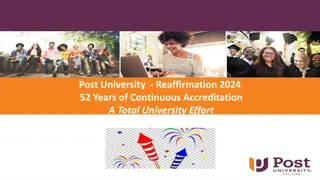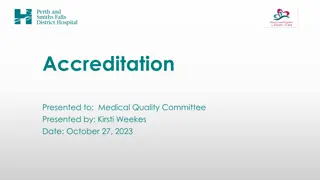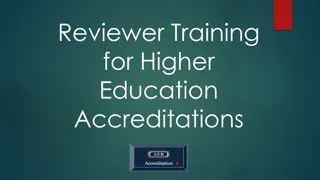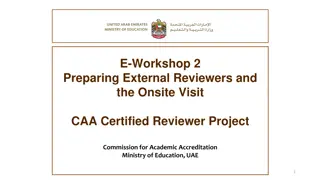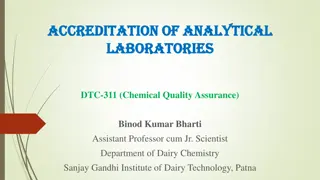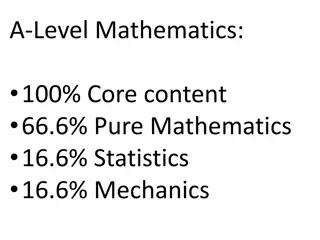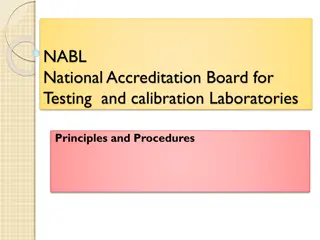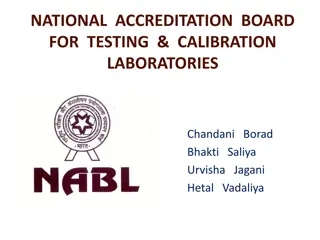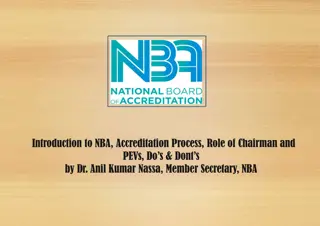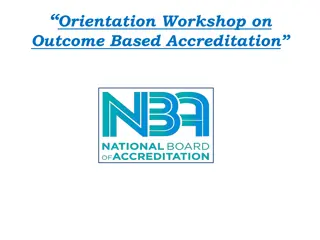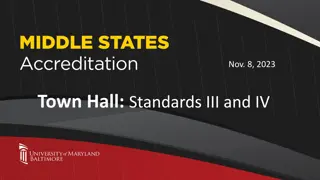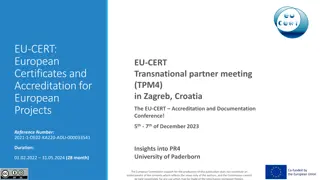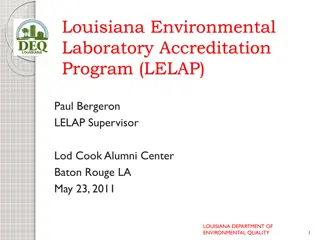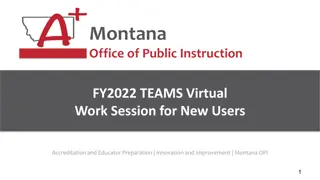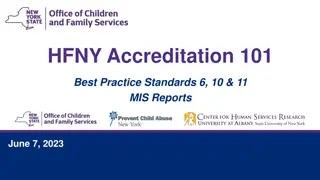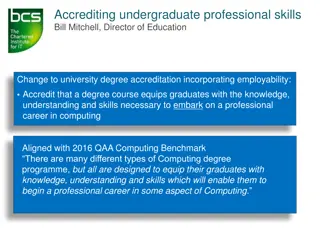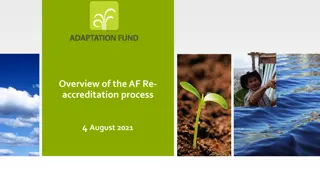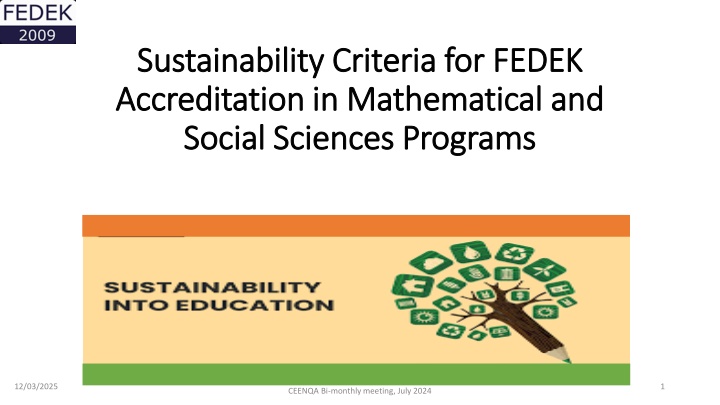
Accreditation Criteria and Sustainability in Social Sciences and Mathematics Programs
This content discusses the criteria for accreditation in social sciences and mathematics programs, focusing on sustainability. It includes details from the FEDEK meeting in July 2024, emphasizing the importance of meeting accreditation standards in these fields.
Download Presentation

Please find below an Image/Link to download the presentation.
The content on the website is provided AS IS for your information and personal use only. It may not be sold, licensed, or shared on other websites without obtaining consent from the author. If you encounter any issues during the download, it is possible that the publisher has removed the file from their server.
You are allowed to download the files provided on this website for personal or commercial use, subject to the condition that they are used lawfully. All files are the property of their respective owners.
The content on the website is provided AS IS for your information and personal use only. It may not be sold, licensed, or shared on other websites without obtaining consent from the author.
E N D
Presentation Transcript
Sustainability Sustainability Criteria for Accreditation Accreditation in Social Sciences Program Social Sciences Programs s Criteria for FEDEK in Mathematical and Mathematical and FEDEK 12/03/2025 1 CEENQA Bi-monthly meeting, July 2024
A core role of universities is to produce quality graduates for the economy and society, with the knowledge and skills they need to secure a job and to succeed. In today s world of climate chaos and global challenges, the imperative that graduates also make a positive contribution to the world has driven a global movement towards education for sustainable development 12/03/2025 CEENQA Bi-monthly meeting, July 2024 2
Students who go through FEDEK accredited programs should know that they have acquired the knowledge and skills they need regarding sustainability. FEDEK addresses these issues from two different perspectives: 1 - In terms of applications on campus 2 - In terms of course contents. 12/03/2025 CEENQA Bi-monthly meeting, July 2024 3
Discipline- Specific Criteria Program Educational Objectives Students Organization and Decision- Making Processes Program Outcomes FEDEK EVALUATION CRITERIA Campus Management Related Evaluation Criteria lnstitutional Support and Financial Resources Continuous Improvement Faculty Members Facilities Curriculum 12/03/2025 CEENQA Bi-monthly meeting, July 2024 4
There are five main issues in sustainability that we think should be taken into consideration for FEDEK: Water scarcity, Solid waste and plastic pollution Global warming and climate change Protection of the Earth, especially forests and arable areas Pollution and acidification of the seas. The importance of these sustainability-related issues varies from country to country. 12/03/2025 CEENQA Bi-monthly meeting, July 2024 5
A - RELATED TO WATER FOOTPRINT (RELATED TO WATER SHORTAGE) a - Is the total water consumption on campus, per capita (faculty, employee, student) known b - Have working teams been established in the department - dean's office - campus - university and brainstorming has been done first about what can be done for the following purposes? Have reports been prepared? Is there any document? Is there any application started? b1 - Things that can be done to reduce water consumption in toilets b2 - Things that can be done to reduce water consumption in cafeterias and canteens b3 - Things that can be done to reduce water consumption in laboratories b4 - Things that can be done to reduce water consumption and evaporation in garden irrigation b5 - Things that can be done to reduce water consumption in official cars and service cars (related to car washing) 12/03/2025 CEENQA Bi-monthly meeting, July 2024 6
b6 - Purification of waste water and obtaining gray water b7 - Garden watering with gray water b8 - Collection of rainwater in cisterns b9 - Planting and using plants that require less water in gardens b10 - The part of the rainwater that cannot be collected in cisterns is discharged into the soil rather than into urban wastewater channels. b11 - Well water use b12 - Things that can be done to reduce water consumption in cleaning works, to prevent dust, etc. b13 - Using rain-permeable concrete, asphalt, etc. 12/03/2025 CEENQA Bi-monthly meeting, July 2024 7
B - REGARDING CARBON FOOTPRINT (ENERGY EFFICIENCY - ENERGY SAVING) a - Heat Energy a.1 - Are the total consumptions of natural gas, LPG consumption, fuel oil consumption, diesel coal consumption for heat generation, renewable heat energy and electricity usage for heating known on the campus? Are their per capita consumption (faculty members, employees, students and subcontracted company employees) known? a.2 - Have working teams been established in the department - dean's office - campus - university and brainstormed first about what can be done for the following purposes? Have reports been prepared? Is there any document? Is there any application started? a.2.1 - Saving (reducing) heat energy, improving combustion and boiler efficiency, a.2.2 - Preventing heating when unnecessary by administrative measures a.2.3 - Insulation, prevention of heat loss through windows and doors, passive solar energy a.2.4 - What can be done about the conversion from fossil fuels to renewable heat energy (solar collector energy, geothermal energy, heat pump) 12/03/2025 CEENQA Bi-monthly meeting, July 2024 8
B - REGARDING CARBON FOOTPRINT (ENERGY EFFICIENCY - ENERGY SAVING) b - Electrical Energy b.1 - Is the total electricity consumption known on campus and in the department? Are their per capita consumption (faculty members, employees, students and subcontractor employees) known? b.2 - Have working teams been established in the department - dean's office - campus - university and brainstorming has been done first about what can be done for the following purposes? Have reports been prepared? Is there any document? Is there any application started? b.2_1 - Reducing electrical energy consumption b.2_2 - Increasing efficiency in electricity use b.2_3 - Administrative measures to reduce electricity consumption in the use of air conditioners b.2_4 - Obtaining electricity through renewable methods (solar - wind, etc.) b.2_5 - Studies on the use of electricity in vehicles 12/03/2025 CEENQA Bi-monthly meeting, July 2024 9
B - REGARDING CARBON FOOTPRINT (ENERGY EFFICIENCY - ENERGY SAVING) c - Vehicles c.1 - What is the total consumption of vehicles on campus (official cars, student shuttles, employees' private cars, students' cars) known? Are their per capita consumption (faculty members, employees, students and subcontractor employees) known? c.2 - Have working teams been established in the department - dean's office - campus - university about what can be done regarding the campus, energy saving in vehicles, increasing energy efficiency, transition to renewable energies, electric vehicles, and brainstorming has been done first? Have reports been prepared? Is there any document? Is there any application started? c.2_1 - Maintenance of official vehicles and service vehicles, c.2_2 - Preferring less fuel-consuming vehicles in official vehicles c.2_3 - Increasing the use of motorcycles, scooters, bicycles and scooters c.2_4 - Trend towards electric vehicles c.2_5 - Administrative measures to reduce vehicles' time in traffic c.2_6 - Increasing public vehicles coming to the university c.2_7 - Transportation within and between campuses 12/03/2025 CEENQA Bi-monthly meeting, July 2024 10
C - WASTE - RECYCLABLE WASTE - ZERO WASTE - PLASTIC POLLUTION a - Is the total amount of waste (recyclable and non-recyclable) generated on the campus and the breakdown of this amount by type known? Are their per capita amounts (faculty members, employees, students and subcontracted company employees) known? b - Have working teams been established in the department - deanery - campus - university regarding the wastes related to the campus, their separation, recovery and reuse, and brainstorming has been done first? Have reports been prepared? Is there any document? Is there any application started? b.1 - separation of solid waste b.2 - collection of solid waste b.3 - Compulsory, practical training on the collection and separation of solid waste b.4 - Cafeteria waste b.5 - If possible, converting some waste (especially cafeteria and canteen waste) into organic fertilizer 12/03/2025 CEENQA Bi-monthly meeting, July 2024 11
C - WASTE - RECYCLABLE WASTE - ZERO WASTE - PLASTIC POLLUTION b.6 - Preventing food waste in the cafeteria b.7 - Reducing paper consumption b.8 - Reducing packaging waste and single-use plastics, especially to reduce plastic pollution. And ensuring the use of plastic waste as raw material b.9 - Collecting, separating and utilizing plastic waste as raw material in campus areas. b.10 Reducing the use of plastic packaging, especially in canteens, but thinking about the contradiction between food waste and the use of plastic packaging waste b.11 - Evaluation of the zero waste concept from the campus perspective (if possible) 12/03/2025 CEENQA Bi-monthly meeting, July 2024 12
SUSTAINABILITY IN TERMS OF PRACTICES ON CAMPUS SUSTAINABILITY IN TERMS OF PRACTICES ON CAMPUS The first goal should be to take the following issues into consideration, create an inventory of the campus and think about what can be done. Even such a study will increase the awareness of both students, staff, faculty members and assistants. There must be adequate facilities to allow students to participate in extra-curricular activities Computing and information facilities must be adequate for the scientific and educational activities of students and faculty members The library services provided to students must be adequate 12/03/2025 CEENQA Bi-monthly meeting, July 2024 13
SUSTAINABILITY IN TERMS OF PRACTICES ON CAMPUS Institutional support, constructive leadership, and the strategy for the distribution of resources must be adequate to ensure sustainability and its continuity. The organization of the university and all decision-making processes of the president s office, the faculty, the department and, if any, other sub-units, within themselves and with each other, must be organized in a way so as to support the achievement of sustainability. 12/03/2025 CEENQA Bi-monthly meeting, July 2024 14
SUSTAINABILITY IN TERMS OF COURSE CONTENT It is likely that the main topics of sustainability will be included in the course content, either as a separate compulsory course or within some compulsory courses or in lifelong learning in the future. Following topics may be included in the course content: 1 - Within the general concept of sustainability, discussing the dimension of sustainability that concerns us, the environment, environmental heritage and historical heritage. For example, discussing the fact that economic or social sustainability and social acceptance is a different issue, giving examples 2 - Water scarcity, 3 - Solid waste and Plastic pollution 4 - Global warming and climate change 5 - Protection of the earth, especially forests and arable lands 6 - Pollution and acidification of the seas 12/03/2025 CEENQA Bi-monthly meeting, July 2024 15
The quality of a student's educational experience and their exposure to sustainability incorporated into the curriculum design process is critical to developing solutions to our most pressing environmental, social and economic challenges. Innovative or high-impact practices may cover curriculum content or delivery, faculty capacity-building and professional development, laboratory experiences, teaching methodologies, assessment and evaluation methodologies, cross-disciplinary or multidisciplinary programs, professional development programs or experiential learning designed and proven to improve a student s educational experience and professional development with a focus on the incorporation of sustainability and related professional skills. 12/03/2025 CEENQA Bi-monthly meeting, July 2024 16
The importance of sustainability-related issues varies from country to country and even from region to region. We did a study on T rkiye here. Thanks for your attention. I will gladly answer any of your questions 12/03/2025 CEENQA Bi-monthly meeting, July 2024 17

